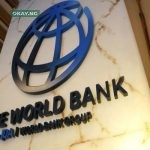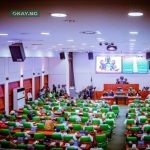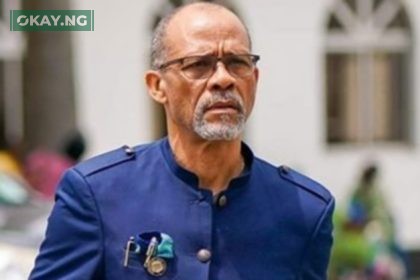Nigeria’s private sector has shown a significant resurgence, with business confidence reaching its highest point in 14 months, according to the latest Stanbic IBTC Purchasing Managers’ Index (PMI). Released on Tuesday, the index soared to 54.3 in March, a notable increase from February’s 53.7, signaling a robust expansion in business activity.
This surge, the most substantial since January 2024, is primarily attributed to a “sharp increase in new orders – the fastest in 14 months,” as stated in the official report. A PMI reading above 50 indicates growth, and this sustained upward trend, now in its fourth consecutive month, reflects a strengthening Nigerian economy.
“We are seeing a clear indication of growing domestic demand,” says a senior economist at Stanbic IBTC, “which is driving this positive sentiment across various sectors.” The report highlights that manufacturing, trade, and real estate are all experiencing expanded output, contributing to the overall positive outlook.
One of the most encouraging developments is the decline in input cost inflation, which has reached its lowest level since May 2023. This aligns with data from the Nigerian Bureau of Statistics, which shows the headline inflation rate easing to 23.18 percent in February. This drop, compared to January’s 24.48 percent, suggests that inflationary pressures are beginning to subside.
“Softening inflationary pressures are helping to improve domestic demand conditions,” the PMI report notes. This easing allows businesses to plan more effectively and even stockpile inputs, anticipating continued cost stability.
The report also indicates a modest rise in employment levels, the most significant increase in seven months. While some firms are opting for contract-based hiring, the overall job market sentiment remains positive. This growth in employment, although gradual, points towards a healthier labor market, further boosting economic activity.
Read Also: Nigerian Businesses Remain Confident Despite Slight Growth Moderation
“This data is encouraging, and if this trend continues, we could see a more stable and growing economy,” says a local business owner, reflecting the optimism shared by many.
It is important to note that the core inflation, excluding volatile agricultural and energy prices, stood at 23.01 percent in February, a decrease of 2.12 percent compared to the previous month. This further validates the trend of decreasing inflationary pressure.
The sustained increase in the PMI, coupled with easing inflation, provides a strong foundation for continued economic growth. While challenges remain, the current trajectory suggests a promising outlook for Nigeria’s private sector.












